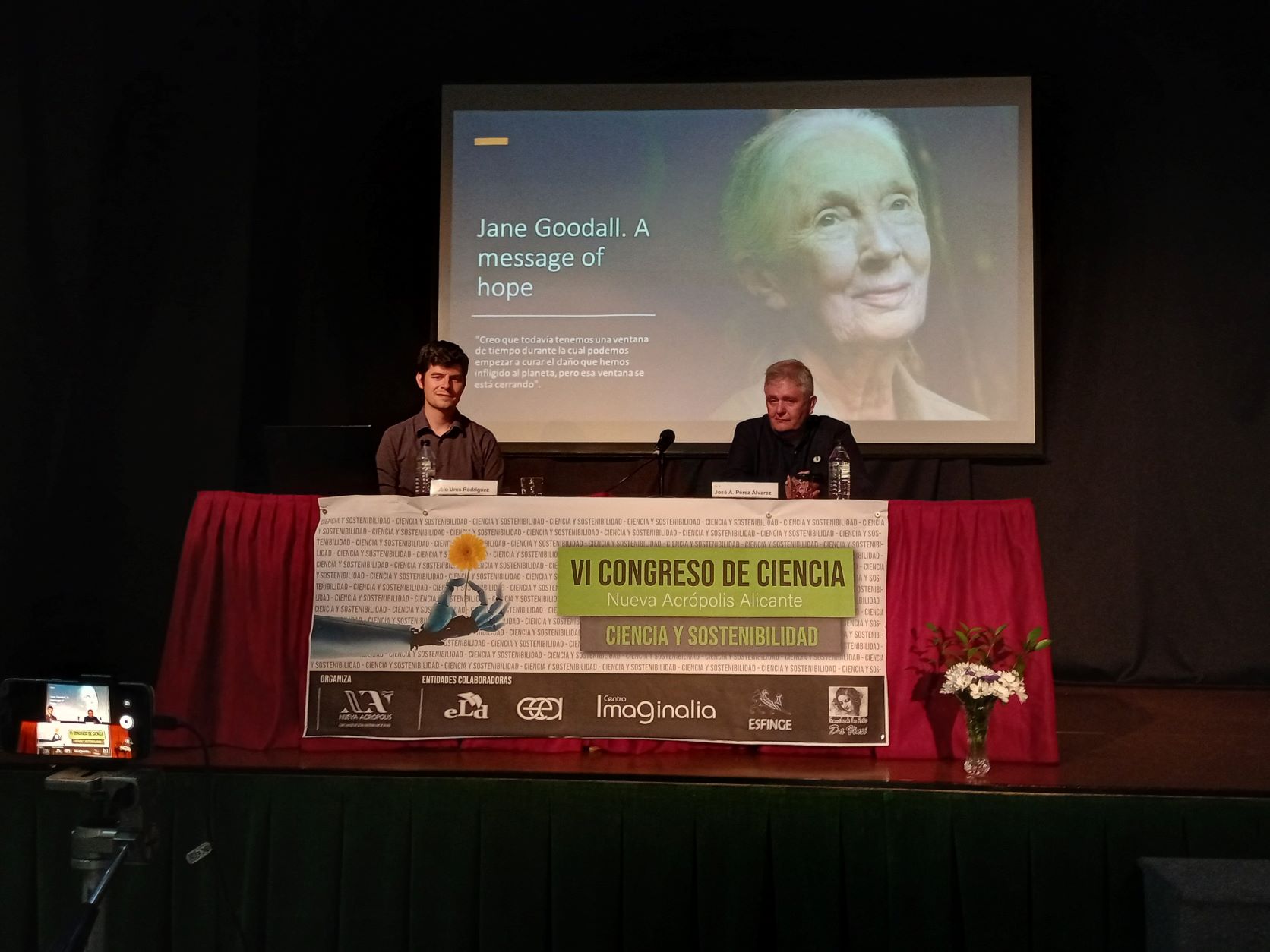6th Science Congress: “Science and Sustainability” (Alicante, Spain)
The 6th Science Congress was held at the New Acropolis Headquarters in Alicante, Spain, resuming the face-to-face modality together with on-line transmission. The director, Mr. Juan Adrada Lozano, emphasized that the purpose of the congress is to spread knowledge of the laws of nature, disseminating the ideas that will lead us to build the sustainable world that we need to live in harmony with the environment, with other human beings and with ourselves.
The first lecture was given by the director of Industrialisation of Animal Products Research Group (IPOA) at Miguel Hernández University – Mr. José Ángel Pérez Álvarez, who is also a lecturer in Biotechnology and Food Science and Technology at UMH and holds a master’s degree in Agri-Food Technology and Quality from the same university.
His lecture, entitled Sustainability as a new challenge for the agri-food industry and its implication in development, offered the opportunity to learn about the current state of research in various branches of food technology carried out by multidisciplinary teams of professionals and specific technicians in the field, philosophers, anthropologists, lawyers, etc.
The next speaker, Pablo Ures Rodríguez, holding a bachelor’s degree in chemistry and a master’s degree in Water and Environmental Engineering, presented the paper entitled “Origin and present-day fundamentals of sustainability”. The talk began by tracing the history of awareness of sustainability as a concept, which in some respects dates back to the Industrial Revolution (the 1972 Clean Water Act in the United States), the oil crisis of the 1970s, and the 1987 Brundtland Report for the UN, which contrasts the current economic development stance with that of environmental sustainability.
Pablo Ures Rodríguez then analysed the principles of sustainable development in a detailed and didactic way, for example: the principle of precaution and prevention; the axes of sustainability based on intragenerational and intergenerational equity, and responsible consumption. He also mentioned the effects of globalisation and the importance of creating autonomous systems for the self-management of resources and waste or by-products based on a circular economy.
Finally, he commented on The Book of Hope by Jane Goodall and Douglas Abrams, in which the famous naturalist and conservationist teaches us how to find the strength when faced with the climate crisis, and explains why she remains hopeful for the natural world and for humanity.
The Congress ended with a lively debate between the audience and the speakers on various aspects of the presentations.


